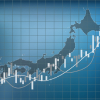Insights
Navigating Japan Equities: Monthly Insights from Tokyo (October 2022)
This month we analyse what immediate impact the full reopening of Japan could have on the economy and markets; we also review the factors that may make Prime Minister Kishida’s “asset-income doubling plan” more effective in the long term.
A big comeback: Rising fortunes of Asia’s small caps
Enhancing returns from opportunities in global credit
The current environment in fixed income is definitely challenging for investors as the rate cycle has turned. However, we believe that by unlocking the full performance potential of the different credit asset classes achieving positive absolute performance is still possible.
Global Investment Committee’s Outlook: Negative 4Q, then central banks relent and markets rebound
Our scenario is fairly ugly for the 4Q, but has a strong silver lining thereafter. We are not optimistic about the global economy and investor returns reverting to normal for an extended period, but there should be clear intermediate term relief and pockets of strong outperformance due to idiosyncratic advantages.
Balancing Act-Monthly insights: Multi-Asset Team-September 2022
The world is fast entering the adjustment phase as deglobalisation is accelerating, requiring new solutions and investment to clear new imbalances from energy supply to labour and eventually normalise inflation.
ESG through an Asian equity lens
In recent years, the increased focus on ESG has validated our beliefs. Yet, the complex and fast-changing economies and societies that make up Asia continue to be a challenge confronting investors looking to apply ESG analysis across Asian asset classes. This is a good thing, as investors who can do this successfully will likely add even more value to alpha generation.
On the Ground in Asia-Monthly Insights: Asian Fixed Income-August 2022
Inflationary pressures continued to remain elevated in July, as the headline CPI numbers in South Korea, Singapore, Indonesia and the Philippines increased, while those of Thailand and India moderated. During the month, the central banks of Thailand, Indonesia, the Philippines, South Korea and India raised their key policy rates.
Harvesting Growth, Harnessing Change - Monthly Insights: Asian Equity-August 2022
The regional index of the MSCI AC Asia ex Japan in August was flat at 0.0% in US dollar terms, recovering after falling into negative territory earlier. The North Asian region was weighed down by foreign currency effects, trailing behind its ASEAN counterpart. India benefitted from its rate hike and lower oil prices.
Navigating Japan Equities: Monthly Insights from Tokyo (September 2022)
This month we discuss the factors behind Japan’s high level of share buybacks; we also look at the economic implications of COVID in the wake of a particularly large infection wave.
Japan Value Insights: Creating economic wealth by utilising forest resources
Utilising and regenerating Japan’s ample forest resources by promoting a “wood cycle” could contribute to the creation of economic wealth and a net-zero carbon future.
Japan’s “show me the money” corporate governance: 2Q record high
The just-released 2Q CY22 data on aggregate corporate profits in Japan was very positive, with the overall corporate recurring pre-tax profit margin hitting a record high on a four quarter average.
Global Equity Quarterly (Q2 2022)
Our belief is that we have moved into a new regime where inflation will be structurally higher despite the anchors of high debt burdens, ageing societies and ongoing technological disruption.
On the Ground in Asia-Monthly Insights: Asian Fixed Income-July 2022
We are taking a more constructive view in duration overall, as we believe that the markets have largely priced in hawkish Fed expectations. Among the low-yielding countries, we prefer Singapore and Hong Kong, while we like Malaysia and India among the mid- to high-yielding countries. On currencies, we maintain our preference for the Singapore dollar.
Future Quality Insights – August 2022 - Halgos and three steps for navigating the road ahead
It may be easy to become gloomy after the drawdown of the last few months. But we believe that there are plenty of reasons to be optimistic about the prospects for compounding your future capital from today’s levels, if you take into account the following three steps: 1) recognise that that we have shifted to a different road type, and it is rougher and more variable; 2) realise that this new road may be best travelled with different vehicles; and 3) improve your probabilities by sticking to a few enduring principles.
Balancing Act-Monthly insights: Multi-Asset Team-August 2022
The shift in market narratives continues to gather pace, matching the increase in volatility of the economic cycle seen since the beginning of the pandemic. Central banks are generally aiming to smooth the economic cycle, but this time they may be adding to the volatility of the cycle instead.
Harvesting Growth, Harnessing Change - Monthly Insights: Asian Equity-July 2022
Higher commodity prices impacted returns in Asia, while a slip in prices of crude oil and metals benefitted many Asian nations. We expect the future trajectory of inflation to dictate the path of interest rates, which in turn is seen determining economic growth globally.
Asia corporate high yield: Market review and outlook
Asia high yield credit had a tough start to 2022, succumbing to heavy selling pressure . Apart from geopolitical tensions, tighter financial conditions and rising recession risk in major developed economies, sentiment toward Asia HY has been heavily weighed down by sustained stress in China’s property sector. Going forward, we believe the pace of correction will moderate.
Global Unconstrained Bond Fund Q3 2022 Outlook
We present our Q3 2022 outlook for the Global Unconstrained Bond Strategy which incorporates our core markets, emerging markets and global credit views.
Asia bonds: Calmer seas ahead
We explain why we are more positive on Asia bonds than we were at the beginning of 2022. To begin with, inflation in Asia is less severe compared to other regions, lessening the need for Asian central banks to tighten aggressively. This makes Asia bonds attractive from a real yield perspective.
Balancing Act-Monthly insights: Multi-Asset Team-July 2022
The East and West appear to be headed in different directions. The East may benefit from China’s easing and supportive growth characteristics. Meanwhile, the West is mired in slowing growth, excessive levels of inflation and central banks ever more eager to take down inflation through conventional tool kits designed to slow demand.
On the Ground in Asia-Monthly Insights: Asian Fixed Income-June 2022
Inflationary pressures accelerated in May across the region, due to higher transport and food prices. We maintain our preference for Malaysian bonds, as we believe that inflation will be better contained in Malaysia compared to other countries.
Our view on Japan’s upper house election
As it often is when Japan’s Liberal Democratic Party wins an election by an impressive amount, the initial equity market reaction was positive. But the ramifications of the ruling party’s upper house election victory will in the intermediate term be a function of what happens to the global economy and geopolitics in the months and quarters ahead.
Navigating Japan Equities: Monthly Insights from Tokyo (July 2022)
We take a look at why the Bank of Japan is likely to stick to its easy monetary policy even as other central banks embark on policy tightening; we also highlight the signs of a full-fledged capex recovery taking place in Japan.
Chinese EVs and their potential from an investment perspective
There has been remarkable progress in electric vehicle (EV) technology and its acceptance globally. We believe that Chinese EVs are set to lead the world in this area as technological innovation, demand, government policy and consumer behaviour have put China ahead of Europe and the US.
Fears of a recession and the US CPI hitting a four-decade high of 8.6% year-on-year in May rippled through various economies. Asian markets took heed from the multiple headwinds in the US, with inflation being a common theme across the region. For the month, the MSCI AC Asia ex Japan Index fell by 4.5% in US dollar terms.
Amid today’s incessant chatter of rising inflation and global recession fears, we identify three high conviction themes driving a growth renaissance in ASEAN: electric vehicles (EVs), digitalisation and a revival by the old industrial economy.
“Stagflation-lite” coupled with a severe geopolitical crisis was much worse for equities than we expected, but most of the bad news is priced in, so the prospect for global economies and equities in aggregate should improve. While we expect global GDP to moderately underperform consensus, it should skirt recession and positively surprise equity markets, which increasingly have priced in recessionary conditions.
Balancing Act-Monthly insights: Multi-Asset Team-June 2022
Defined as negative growth for two consecutive quarters, a recession is certainly in the realm of possibilities (if not probable). However, it may be more a reflection of continued extreme economic volatility following the COVID-19 pandemic, rather than a conventional recession that follows an extended period of economic expansion.
Japan’s “new form of capitalism” in review
We review the “new form of capitalism”, a government plan to boost economic growth initiated by Japanese Prime Minister Fumio Kishida, who is enjoying a high public approval rating ahead of a closely watched upper house election.
Navigating Japan Equities: Monthly Insights from Tokyo (June 2022)
This month we explain why losses by Japanese equities so far in 2022 have been limited relative to their peers; we also assess the positive impact a return of inbound tourism could have on Japan’s economy and markets.
Japan’s “show me the money” corporate governance: 1Q record high
The just-released 1Q CY22 data on aggregate corporate profits in Japan was positive, with the overall corporate recurring pre-tax profit margin hitting a record high on a four quarter average. Both the non-financial service and manufacturing sectors contributed, with the latter surging to another record high. Note that the strong results occurred despite quite weak GDP, further proving the long-held theme of this report that profit margins remain on a structural uptrend despite sluggish domestic GDP growth, as shown in the charts below. Increased pricing power, coupled with improving corporate technological prowess and efficiency, should be credited for this, but improving global economic growth certainly was also a major factor.
For the last two centuries energy revolutions have created extensive platforms for subsequent technologies to drive wealth creation and raise living standards across the world. And this decade heralds the start of an energy revolution providing investors with lots of opportunities—the beginning of an energy broadband infrastructure boom.
Harnessing Change: An investment philosophy for Asia
Change is both more prevalent and significant in Asian markets. We believe that seeking to understand it is essential to deliver sustainable returns.
Balancing Act-Monthly insights: Multi-Asset Team-May 2022
The outlook is increasingly clouded as markets come to terms with a Fed that may do “whatever it takes” to contain inflation. Given that current inflationary pressures appear to be mainly driven by supply-side constraints and rising energy prices, it follows that the Fed would need to be willing to take the economy into a recession to meet its mandate.
Asian markets were downcast in April as investors were concerned about inflation and the likelihood of a larger-than-expected rate hike by the US Federal Reserve. For the month, the MSCI AC Asia ex Japan Index fell by 5.2% in US dollar (USD) terms.
Global Unconstrained Bond Strategy Q2 2022 Outlook
We present our Q2 2022 outlook for the Global Unconstrained Bond Strategy which incorporates our core markets, emerging markets and global credit views.
Navigating Japan Equities: Monthly Insights from Tokyo (May 2022)
We discuss the implications of the weak yen, now considered by some as a menace rather than a blessing, for the Japanese market and economy. We also explain the potential impact of higher energy and commodity prices.
Ground-level observations from China
A trip back to China provided an opportunity to experience first-hand the impact innovative technology and digitalisation is having on a fast-changing urban society.
Balancing Act-Monthly insights: Multi-Asset Team-April 2022
Relief rallies are always encouraging but do not necessarily portray parting clouds for a return to “normal” market conditions. The market is still digesting a rather dizzying array of challenging dynamics that have unfolded quickly over the last quarter.
Global Equity Quarterly (Q1 2022)
We are keen to participate in the push towards a less carbon intensive future but want to do so in a balanced fashion, with one eye on the associated risks.
On the Ground in Asia-Monthly Insights: Asian Fixed Income-March 2022
We have eased our cautious view towards duration as we expect global rates to consolidate from current levels. On currencies, we are positive on the Malaysian ringgit, Indonesian rupiah and Singapore dollar.
Harvesting Growth, Harnessing Change - Monthly Insights: Asian Equity-March 2022
Asian stocks declined in March, dragged down by the Russia-Ukraine conflict. Lingering concerns over inflation also weighed on the equities markets. For the month, the MSCI AC Asia ex Japan Index fell by 2.8% in US dollar terms.
Navigating Japan Equities: Monthly Insights from Tokyo (April 2022)
This month we discuss the Japanese stock market’s recovery from the initial shock of the Russia-Ukraine war; we also assess the potential impact of a Russian debt default on Japan’s markets and financial system.
Japan Value Insights: Spotlight on sustainable companies addressing social issues
We share our thoughts on sustainable companies that address social issues and contribute to the physical and mental well-being of individuals.
The GIC expects the global economy to continue struggling in a form of “stagflation-lite” and sees a relatively flat performance for global equities for the next three to six months (although quite positive on Pacific equities), with moderate weakness for global bonds.
Balancing Act-Monthly insights: Multi-Asset Team-March 2022
The Russian invasion of Ukraine has created significant uncertainty for investors. Prior to the war’s outbreak, central bankers were already facing a challenging inflationary environment, and these new commodity-driven price pressures are set to complicate matters even further.
On the Ground in Asia-Monthly Insights: Asian Fixed Income-February 2022
We are generally neutral to slightly cautious in our view of countries whose bonds are relatively more sensitive to UST movements. Within Asia currencies, we prefer the Chinese renminbi and Malaysian ringgit over the Indian rupee and the Philippine peso.
Navigating Japan Equities: Monthly Insights from Tokyo (March 2022)
This month we discuss how higher long-term yields could impact Japanese stocks; we also focus on how robust exports could play a role in boosting the country’s long stagnant wage growth.
Japan’s “show me the money” corporate governance: 4Q record high
The just released 4Q CY21 data on aggregate corporate profits in Japan was very positive, with the overall corporate recurring pre-tax profit margin hitting a record high on a four quarter average.
Russia-Ukraine conflict – Nikko AM’s views
In order to gain a range of perspectives on the Russia-Ukraine conflict, Nikko Asset Management has gathered the views of various experts and investment teams, representing many of our major asset classes and geographical regions.



















































